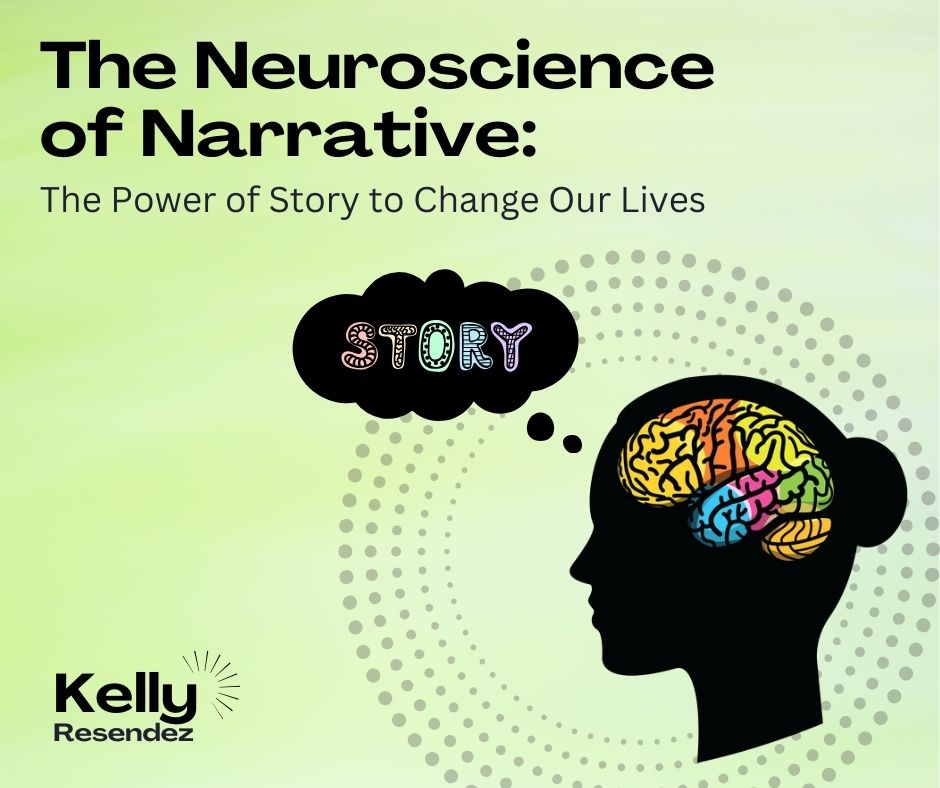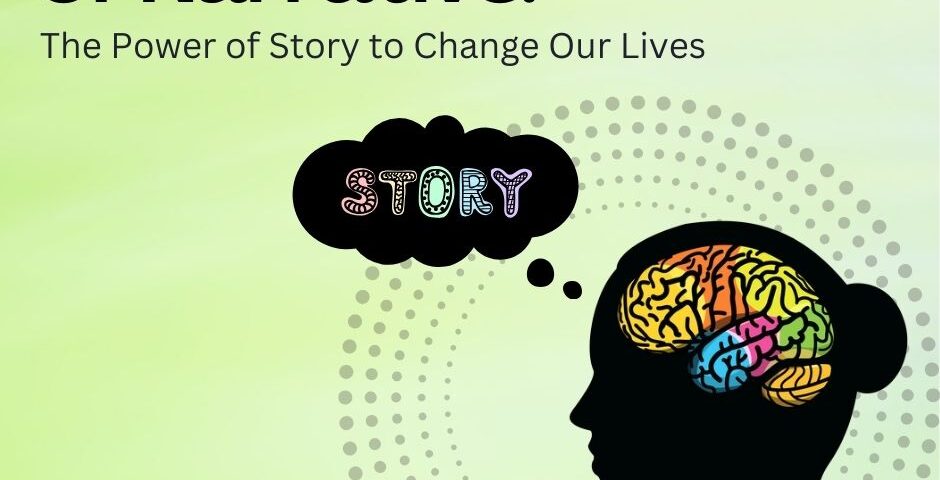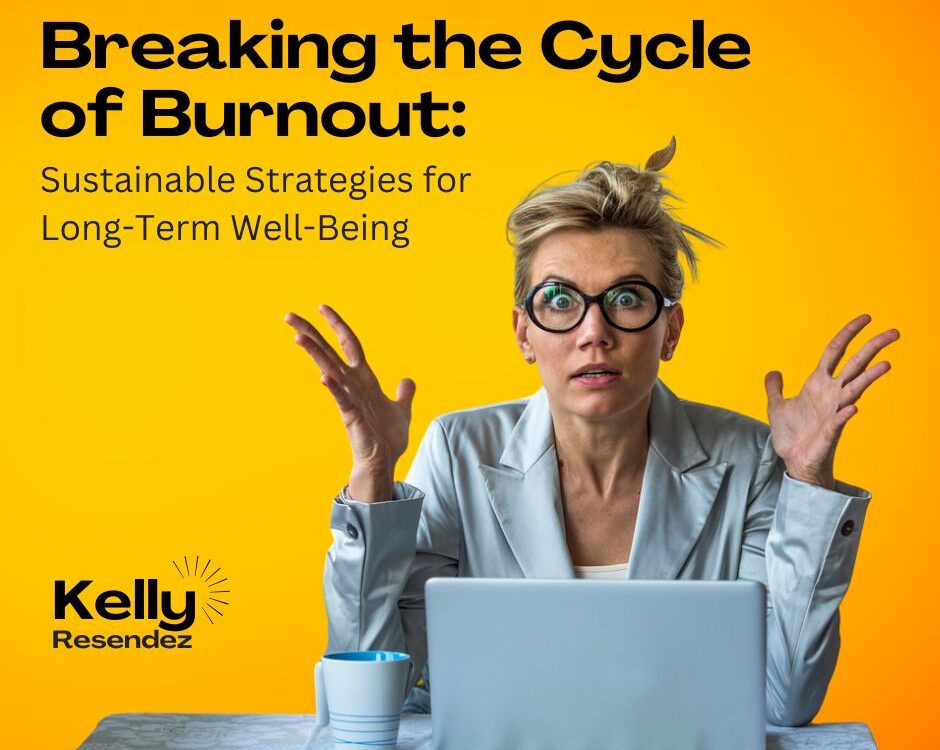
Women in the Workforce – a Timeline to Celebrate Women’s History Month!
March 21, 2024
31 Fascinating Facts about Mental Health for May
May 15, 2024
Since the first human beings roamed the earth, our brains have been wired to make sense of the world through stories. Even today, the most compelling stories we encounter are often not found in books, movies, or online, but are those we tell ourselves.
These narratives, crafted through self-talk and belief, reinforced through environment or our own replaying, profoundly influence our behaviors and, therefore, our reality.
Understanding the power of these personal stories and how we can harness them allows you to break through from your past, grow unencumbered, and live the life you truly deserve.
The Impact of Personal Narratives
Each day, we engage in a continuous internal dialogue that reinforces our identity and beliefs about the world and our place in it. These narratives are powerful: they dictate our behavior, guide our decisions, and shape our future.
Essentially, if you believe you are a natural leader, you’re more likely to act confidently in group settings. However, if you see yourself as someone who is not good at public speaking, you might quake in fear and avoid situations where you need to speak in front of others.
But even if you’re the latter person, that greatness and natural confidence may be within you. It’s just that you started telling yourself the story that you’re a bad speaker, whether it was based on a traumatizing experience, someone important to you told you so (like a teacher or parent), or just something you crafted as an excuse not to face your fears.
The same is true with work, money, relationships, love, fitness, body image, and more – our outcomes are all based on what we tell ourselves.
The Science Behind Stories
If we couldn’t organize and catalog everything we experience into a neat, convenient narrative, our brains would quickly become overwhelmed, rendered stuck, and unable to process even the most basic tasks.
There has been some illuminating research and scientific studies around the prevalence and power of this phenomenon:
· A study from the University of Southern California found that personal stories about oneself activate parts of the brain associated with self-perception, thus affecting how we perceive our own abilities – but also limitations.
· Numerous studies show that negative self-talk can lead to increased stress, anxiety, and depression. Conversely, positive self-talk and empowering personal narratives have been linked with higher levels of confidence and overall mental well-being in research.
· Cognitive psychologists have identified that consistent self-talk, whether positive or negative, forms a feedback loop in our neural pathways. Essentially, the more you repeat a story about yourself, the more your brain begins to accept it as truth.
· Neuroimaging studies reveal that when people engage with stories, the regions of the brain involved in actually experiencing the events of the story are activated!
· This is supported by a study from Stanford University, which showed that students who believed they could become smarter actually showed improved learning outcomes.
· The placebo effect is a primary example of belief in action. Patients who believe they are receiving a treatment often experience a physiological response and better health outcomes even if the treatment is inert.
· In fact, neuroscientists now conclude that our brains actually prefer stories to facts! Stories engage more parts of the brain, such as the motor cortex, sensory cortex, and frontal cortex, which are responsible for understanding and processing emotions, sensations, and actions. This engagement makes narratives much more memorable and influential than straightforward data.
Change Our Stories = Change Our Lives
It’s now estimated that the average person has about 12,000 individual, focused thoughts per day, and usually around 80% or more are negative.
By simply recognizing those prevailing negative thoughts that play on repeat, deconstructing them, and replacing them with preferrable narratives, you’ll harness the power to change to your life in just about any way you’d like.
Here are 5 tips for consciously crafting stories that will allow you to completely change your life:
1. Identify your current narratives.
Begin by observing your thoughts and self-talk. Keep a journal and note down repetitive thoughts or statements about yourself. This awareness will highlight the themes and tones of your current narrative.
2. Challenge limiting beliefs.
Question the validity of negative or limiting stories. For example, replace thoughts like “I can’t handle this” with “I have handled similar situations before, I can learn from this too.”
3. Carefully craft a new story.
Develop a narrative that aligns with who you want to be and your goals. Use affirmative language that supports growth and possibility, such as “I am capable of learning new skills.”
4. Visualize and reinforce.
Imagine yourself living out your new story. Visualization not only helps in solidifying the narrative but also prepares the brain to act according to the new script.
5. Seek feedback (and accountability).
Share your new narrative with trusted friends, mentors, or coaches. Feedback can provide a new perspective and encourage adherence to your new story.
***
This process may be difficult at first and take you out of your comfort zone. But with discipline and practice, your new stories will grow and manifest in incredibly powerful and positive ways.
Remember that you and no one else gets to write the new story of your life but you!



